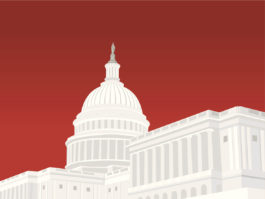Yesterday, Governor Mills issued an Executive Order with rules governing business operations during this state of emergency. Under the order, construction is considered an essential industry, and companies can continue to operate so long as they observe strict social distancing and sanitation protocols. Additionally, here are a few ideas for work safety protocols:
- Notify your supervisor and do not come to work if: you have been exposed to someone sick or you are feeling symptoms common to COVID-19
- Please be diligent about hand-washing including when you arrive at a work-site
- Observe 6′ separation whenever possible, including during breaks (mandatory)
- Cough or sneeze into your elbow and then wash your hands
- Reduce gather sizes to as few people as possible, no more than 10 (mandatory)
- Hand sanitizer must be readily available (mandatory)
While construction businesses remain open for now, consider the possibility of and impact of supply chain delays, and watch the federal government’s continued debate about relief packages.
Read our full write-up about the Executive Order.
What Happens if Sites Do Shut Down?
If your sites are shut down, cash flow will be immediately impacted. Here are some actions you can take to support your business in the immediate term:
- Consider calling your banker now. Ask to establish/expand your line of credit. Ask about the bank’s current policies. The FDIC is asking banks to work with companies in terms of changing payment due dates, waiving or refunding fees, and extending credit lines.
- Understand the complex and changing federal rules around unemployment insurance before issuing any furloughs or layoffs.
- Stop discretionary spending
- Look at the terms of your A/P and pay at the end of the term or negotiate later payments
Families First Act
If your company has fewer than 500 employees, you should take note of the Families First Coronavirus Response Act (H.R. 6201, Families First Act). Small Employers would be able to access a substantial refundable tax credit.
- Passed by the Senate on March 18. Would become effective April 1 and end December 31.
- Substantial refundable tax credit for employers to pay for the costs of mandated leave due to COVID-19.
- Would apply to employers with fewer than 500 employees with responsibilities varying based on size.
- Would require group health plans to provide full coverage for COVID-19 testing.
- Would cover employees who are unable to work (including telework) due to a need to care for a child under age 18 if school or child care is unavailable due to a public health emergency.
To take advantage of this tax credit, you must be able to provide documentation of COVID-19 related paid leave. Therefore, it is essential that you contact your payroll company or payroll software vendor to determine how the payments under this Act will be tracked and reported separately for purposes of claiming the credit. Likewise, your payroll or HR person must properly code the time.
What’s Happening in Massachusetts?
On March 17, Boston’s Mayor, Marty Walsh, issued a two-week halt on all construction projects in Boston. On March 23, Massachusetts’s Governor Baker’s office issued a list of essential services. By and large construction employees are listed as essential by this broad definition: “Construction Workers who support the construction, operation, inspection, and maintenance of construction sites and construction projects (including housing construction)” and other additionally itemized workers in the public works and fiber optic cable spaces. It’s unclear whether the Governor’s “essential services” status overrides Mayor Walsh’s work-halt or if construction sites will open up again on April 1.
by David Jean, CPA, CCIFP, CExP





